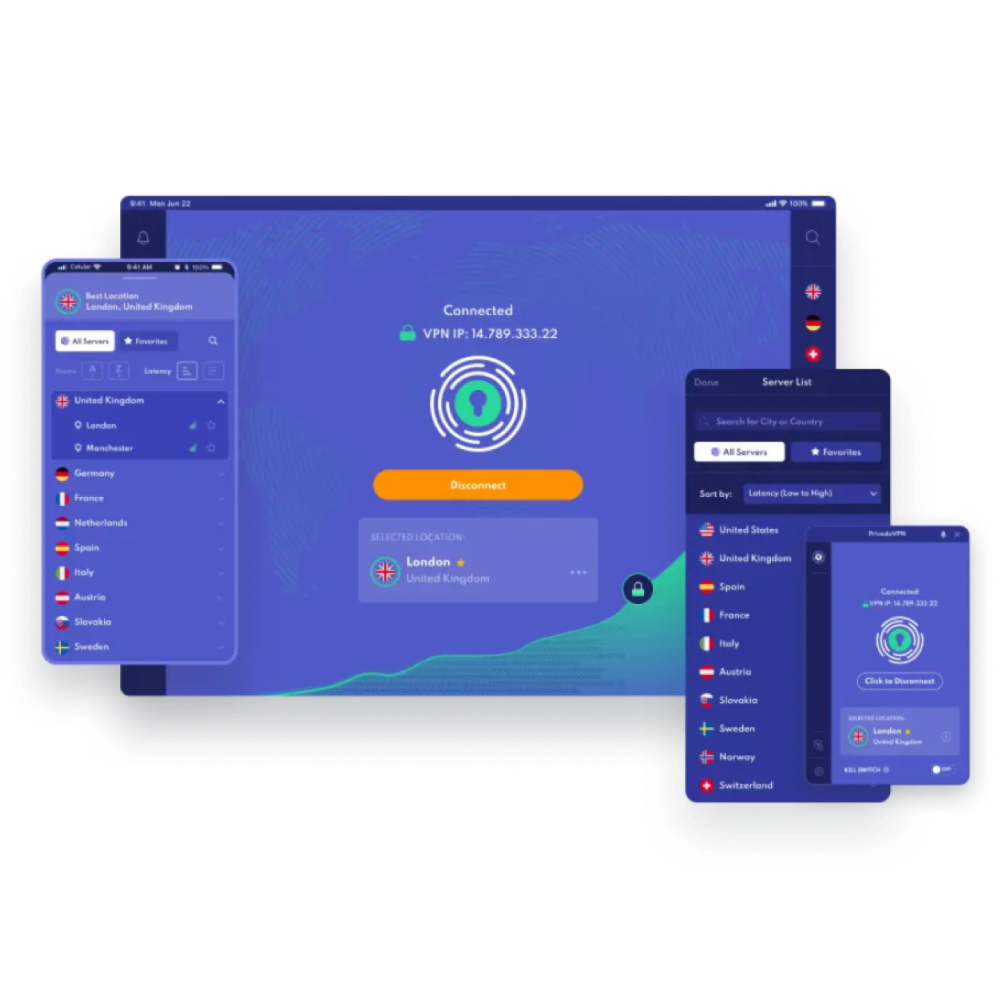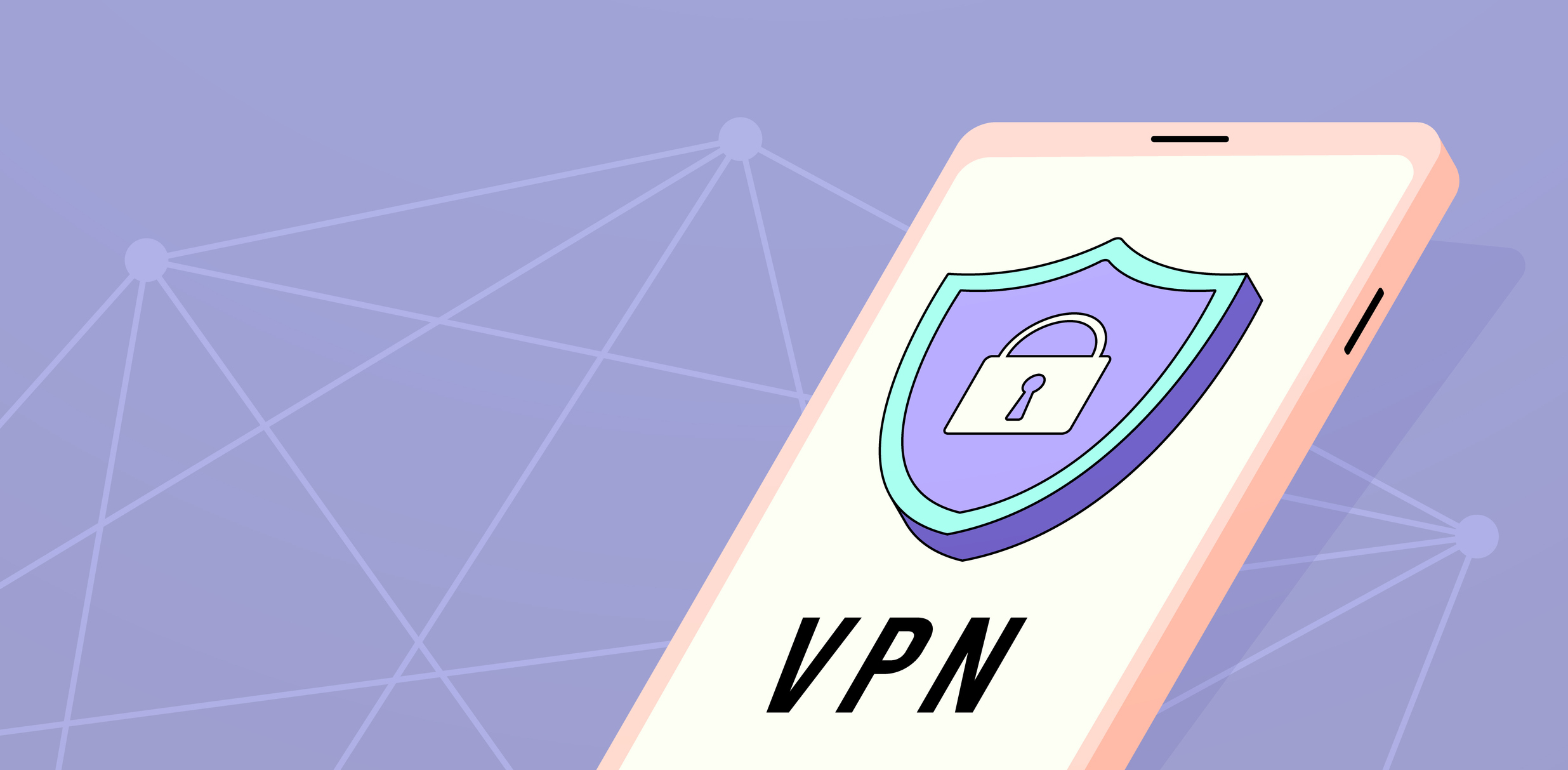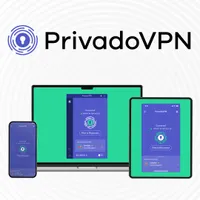What are the differences between PrivadoVPN's paid and free versions?
A free VPN might seem like a good deal, but is it?

Swiss-based PrivadoVPN is a relative newcomer to the world of VPN providers and one of the few to offer a paid subscription and a free plan. This free tier is handy in a pinch and lets you try the service before you buy, or use it as and when you need, without being tied into an ongoing subscription.
PrivadoPVN boasts that it has 'hundreds of servers' and offers locations across 48 countries (if you pay, that is – the free option is far more limited). That's a smaller network than you'll find with most of today's best VPNs, but still large enough that you're almost guaranteed to find a server local to you for lag-free streaming and gaming.
Today I'll compare and contrast PrivadoVPN's free and paid plans, and discuss why paying for your VPN service will always work out better in the end for both privacy and functionality.
PrivadoVPN – paid version from $1.48 per month
The best free VPN for most people
PrivadoVPN might be one of the smaller VPN providers out there, but it's no less capable. With reliable unblocking capabilities, connection speeds that rival our top picks, and a suite of additional tools like ad and malware blocking to keep you safe online, it's well worth checking out. Try the free version or go for the paid plan, safe in the knowledge that a 30-day money-back guarantee means no risk to your wallet.
PrivadoVPN Free
Let’s take a look at the free offering first. PrivadoVPN’s free version stands proud amongst other services, making it a tempting choice when stacked against other best free VPNs such as Windscribe or ProtonVPN.
With PrivadoVPN Free you can install the VPN on all major devices and platforms such as MacOS, Android, Windows, SmartTVs, and more. There is no support for Linux on the free version, however. You'll need to upgrade to the paid version for that.
You get 10 GB of data every month – which is about average for today's free services. The best part is that it's not limited in any way, though free servers are always busier than paid ones, simply because there are fewer of them for people to connect to. That said, PrivadoVPN's connection speeds are fast enough to place solidly in the top ten of our speed tests.
You are, as is often the case with free VPNs, limited to a single connection with PrivadoVPN's free version, meaning you can only run the VPN on a single device. Nothing is stopping you from installing it on as many devices as you want, but you'll only be able to connect one of them at any time.

Tons of people use VPNs for streaming – but we don't recommend free services for the job. Visit our guide to streaming with a free VPN for more information.
PrivadoVPN has a no-logs policy on both versions of the product and, as it's based in Switzerland, you're protected by Swiss data protection regulations. This makes it a more attractive proposition for those users who value their privacy and don't want a VPN based in a 5/9/14 Eyes Alliance country.
The free plan offers access to 13 server locations, which is quite generous compared to other free providers. The servers are situated in Argentina, Brazil, Canada, France, Germany, Mexico, the Netherlands, Switzerland, the United Kingdom, and the United States.
Unfortunately, there are no free servers in the Asia-Pacific regions, so if you're hoping to use PrivadoVPN to stream anime, you'll need to shell out for the paid version.
As you might expect from a free version of a premium product, it's a little feature–light. There are no compromises on security, as it offers the same VPN protocols as the paid version, but you don't get much else. There are no parental controls, no official streaming support, no ad blocking or split-tunneling, or anything beyond basic VPN functionality.
PrivadoVPN Premium
So, perhaps you've tried PrivadoVPN’s free version and you're enjoying it, but you're also chafing at how basic it is. You want more locations, or more devices, or you've had enough of pop-up ads and want to do something about it. Is it time to look at PrivadoVPN’s paid subscription?
Let's look at what's on offer for paying customers.
The supported devices/platforms are much the same as PrivadoVPN Free, but you also get official support for Linux through either a command line interface (CLI) or a graphical user interface GUI. The premium version also offers manual configuration options for OpenVPN.
Unlike the limited free version, there are no speed or data limits with PrivadoVPN's paid subscription, meaning that you won't ever need to worry about sluggish connection speeds due to overcrowded servers.
During testing on our 1Gb line, PrivadoVPN returned speeds of over 950Mbps, and with that unlimited data cap, you can stream, game, or torrent to your heart's content.

Looking for a VPN that won't slow you down – or want to see where Privado VPN stacks up? Check out our fastest VPN rankings.
PrivadoVPN offers 10 simultaneous connections, which is enough for even the largest of tech-savvy families with plenty of devices, and is more than some of our top VPNs such as NordVPN (which only offers 8).
This ensures you don't need to worry about how many people you have using the VPN at the same time. You can also protect every device in your house without having to pick and choose who gets to use the VPN or, if you have a whole household of devices to cover, you can even install PrivadoVPN on your DD-WRT router to protect even your IoT (Internet of Things) gadgets such as internet-enabled cookers, fridges, and smart speakers.
As with the free version, PrivadoVPN's no-logs policy still applies. I'd like to see the VPN undertake an audit by an independent third party to verify that it is indeed walking the walk as well as talking the talk. Audits are, after all, a clear indication that a provider is committed to transparency and privacy for all its users.
PrivadoVPN currently claims to offer servers in 49 different countries and 66 different cities, including in locations further afield such as Japan, Korea, New Zealand, and Australia.
This is a much smaller server network than other premium providers (like NordVPN, Surfshark, or ExpressVPN) but it is still enough that you should be able to find a server local to you without too much trouble. We can't confirm whether or not PrivadoVPN uses any virtual locations, however, or whether its servers are physically situated in these countries.
While it might not offer as many features as a competitor like NordVPN, PrivadoVPN still sports a decent raft of additional features for paying users. This includes essential tools such as split-tunneling, which lets you decide which apps use the VPN connection, a kill switch to protect you against any potential data leaks if your VPN connection drops, and what Privado calls "Control Tower", an ad and website tracker blocking tool that also comes with parental controls for your young one's devices.
Why should I pay for a VPN?
A free VPN is a great way to protect your devices if you're working without a budget or want to try before buying.
The issue is that a free VPN will never offer the same experience as a paid product supported by a subscription. It's also important to consider that many free apps find other ways to make money – primarily through taking your personal data and selling it to marketing agencies.
Look at the Google Play Store or Apple’s app store and you'll find dozens of different VPN apps to choose from, all of them claiming that they can keep you safe, that you don't have to compromise your experience, and that they're completely unlimited. But even the best free VPNs come with limitations designed to encourage you to upgrade and grab a subscription.
The biggest problem with any free VPN on the market, compared to a paid one, is that you'll have to deal with most, if not all, of the following drawbacks:
- Fewer servers to choose from
- Fewer simultaneous connections – in fact most free VPNs only support one connection at any time
- Slower download speeds
- Fewer features and customization options
- Less reliable unblocking power – if they even support streaming at all, which many don't
A paid plan doesn't have any of these limitations. You get more servers in more locations, more connections, unrestricted download speeds, and (depending on the plan you pick), all the customization and extra features that free users get.
Most importantly, these companies can offer a free service thanks to the users who pay a subscription. They are the ones who allow these providers to maintain their servers, develop new tools, and stay one step ahead of streaming services which constantly try to block VPN users by blacklisting IP addresses.
If you're still not entirely convinced that a paying subscription is right for you then PrivadoVPN, as with all the premium VPNs that we recommend, will let you try its service out, risk-free, thanks to its 30-day money-back guarantee. You've got nothing to lose if you give it, or any of the other VPNs we recommend, a try.
We test and review VPN services in the context of legal recreational uses. For example: 1. Accessing a service from another country (subject to the terms and conditions of that service). 2. Protecting your online security and strengthening your online privacy when abroad. We do not support or condone the illegal or malicious use of VPN services. Consuming pirated content that is paid-for is neither endorsed nor approved by Future Publishing.
Sign up to the TechRadar Pro newsletter to get all the top news, opinion, features and guidance your business needs to succeed!

After graduating from Stirling University with a qualification in Education, Shaun accidentally fell into the technology sector in the late 1990's and has stayed there ever since, working for companies such as PSINet, IBM and ProPrivacy in a variety of roles from Systems Administration to Technical Writer. Being around since the birth of the modern internet, he's seen the way that technology has expanded to become an integral part of everyday life, and how people's understanding and ability to retain any kind of privacy has lagged behind.
Shaun is a strong believer in the rights of the individual to have their personal data protected and their privacy respected – a belief made all the stronger in an age of surveillance from both governmental bodies and private companies all around the world.
He spends his spare time cooking, riding his motorbike and spending far too many hours in Star Trek Online hunting Klingons and Borg.
